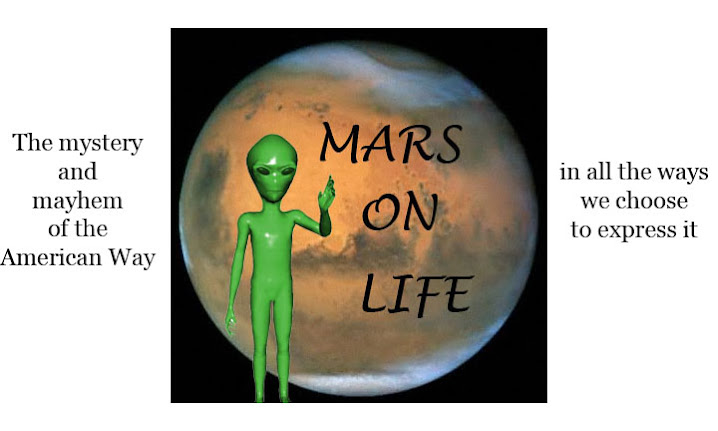 It's okay to look, read the slogan for last year's highly successful Match.com television commercials. The ad campaign was exploiting the roving eye and its inability to hold a steady gaze when it becomes bored or curious. The idea was that no one was ever hurt by looking; the slogan was both reinforcement and challenge.
It's okay to look, read the slogan for last year's highly successful Match.com television commercials. The ad campaign was exploiting the roving eye and its inability to hold a steady gaze when it becomes bored or curious. The idea was that no one was ever hurt by looking; the slogan was both reinforcement and challenge.
The ads, which featured singles doing the things that singles do in their zany private moments (rollerskating, running in place while wearing a jaunty Tyrolean cap, releasing and then trying to catch a bird) craftily preyed upon the romantic restlessness of the viewer and the excitement of non-fiction novelty. They are written with the assumption that the viewer is already aware of dating sites in general (if not Match.com specifically), and that the viewer harbors a secret interest in the site's population.
Match went with the median for its spots, including a middle-aged woman in white satin who steps on the hem of her dress while executing a wobbly curtsy. Nothing to be afraid of there.
The ads worked because of their deceptive simplicity, and yet that apparent simplicity belied a semantic complexity. In fact, unless you changed the channel, you were already looking. Since no harm came of that inadvertent exposure, it followed that no damage would be done by visiting the site itself. If you were worried about your spouse's reaction, well, wasn't he or she sitting right next to you on the couch when you saw the commercial? Was there any collateral hurt? No? Then it was okay to venture just that little bit further. This was the brilliance of the campaign: spontaneous, harmless exposure to a peep show.
In any event, who was ever harmed by a goofy man in a plumed Tyrolean cap?
Another deeper meaning occurred by ellipsis. If looking was okay, then what about touching? Naturally, the ad doesn't mention that and one can only presume that contacting (or touching, presumably the goal) might not be as innocuous an activity.
The campaign targeted the married or otherwise taken man, even as it featured both male and female actors. While there is a surely a segment of the singles population that has no interest in on-line encounters, it was the married man who most needed the reassurance that the slogan provided. Here is where the ad became insidious. The ad's creators knew that it was the married man who might suffer the most internal struggle over visiting the site, and that it was the married man who was most likely to believe he was missing out on something someone else was getting. Getting some, in other words.
That is one of the salient sadnesses about life. No matter how full our lives, we are unable to take any appreciative stock without ruminating what the French call "manque," the thing that is lacked.
Mostly what we lack is romance, although the nature of romantic lack is so complex that it cannot help but be depressive. Lacking something is not the same as not having something, which is why romance and finance are not mentioned in the same breath. One is quantified and the other is melancholically qualified. In general practice they best kept far apart.
Lack involves itself with fancy and desire to such a degree that average restless man is defenseless in the face of it. This is why, when confronted with the commercial and the idea that others may be looking themselves, hesitancy is overruled by emotion. Looking is a basic urge.
Dating sites are Schopenhauerian vehicles driven by the motor of desire. Desire precedes thought. Will trumps reason. What better index to the state of romantic itch than the burgeoning on-line dating industry? Providing nostrums for its temporary relief is a multi-million-dollar business.
Match was only taking responsibility for looking, and in turn would hold the looker blameless, while at the same time realizing that slogan was delusive and apt to result in a whole lot more.
The newest set of Match ads is aimed at the single woman's idea of fictional romance: One of the ads features babies. Babies being born and babies being created and all the things that are supposed to lead up to birth, including love stories, piggyback rides on beaches, and meetings on bridges. And looks, of course; now the slogan has been modified to say that "It all starts with a look."
Also starting with a look is a vacation, for those who aren't quite ready to commit to parenthood but yet have moved in together. This is the ad for the couple whose first date is a Spanish-language film called Amor Verdadero and who then go out for a hot dog. Since not everyone likes schmaltzy foreign movies and hot dogs, this is obviously a perfect pairing. This ad capitalizes on the idea that there is another person out there who is every bit as idiosyncratic and emotionally responsive as you are; if you can find a man who enjoys a foreign tearjerker, you might be able to find one who likes shopping for pink lipstick instead of watching football.
A third targets those twenty-somethings looking for a hunky aesthete who, following an argument, will walk around obliviously during a downpour, ruining his best Doc Martens. By inference, this is also the type of guy who will build bookshelves and perform other nest-building activities. Since this behavior is somewhat of a rarity even among the best of men, Match has made sure to advertise its existence, but only on Match. This is the caveat. Clearly, this type of guy will not be found on Adult Friend Finder.
You can see where Match thought that the "look" campaign was too good not to be slightly rehabilitated. It would have been easy just to do another run of plotless spots featuring people who could do bird calls in A-sharp minor or flip their eyelids inside out. Yet the ads were more interesting that way. Not just because they didn't hammer you over the head with love, but because people are eccentric and impulsive, impossible and annoying, and in their purest form nothing if not the best non-fiction.
Monday, March 31, 2008
Peep Show
Labels:
It's Okay to Look,
Match.com
Subscribe to:
Post Comments (Atom)









1 comment:
It is a defining truth of my life to live it in such a way that there is never a lack of romance. I may be as clumsy as an elephant getting a manicure, but you cannot call me unromantic. (Or you can, but you would be wrong.)
Post a Comment